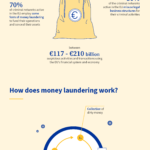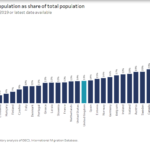Households in the U.S. are more vulnerable to financial shocks than households in other developed countries. The current recession has clearly shown that most American households are not prepared to deal with bad economic conditions. Some of the recent headlines include:
1.9 MILLION FORECLOSURE FILINGS REPORTED ON MORE THAN 1.5 MILLION U.S. PROPERTIES IN FIRST HALF OF 2009. U.S. Foreclosure Activity Up 11 Percent in Q2 to Highest Quarterly Total on Record
ABI: Personal Bankruptcy Filings up 34.3 Percent compared to July 2008
Credit card delinquencies at record high
In researching to understand the reasons behind the shaky foundations of U.S. households I found a Bank for International Settlements Paper “A note on Japanese household debt: international
comparison and implications for financial stability” by Shinobu Nakagawa and Yosuke Yasui that provides some answers. In this post lets review some of key points from this paper.
Click to Expand
From the above table, we can see that Japanese prefer savings. 51% of their financial assets are in the form of bank deposits earning less than 1% interest. 3% is in bonds,5% in mutual funds and 26% in life and pension insurance. Just 11% of their total financial assets are in stocks. Hence the balance sheets of Japanese household are very conservative. With more than 50% in banks they prefer safety over risk.
Compared to the Japanese, American households have just 16% in bank deposits. The French, German and the British hold 1/4th to 1/3rd of their assets in safe,liquid cash and bank deposits. The Germans and French have over 51% of assets in savings and insurance products.Just 9% of British households’ assets and 16% of French and German households’ assets are in stocks. So Americans take on much more risk in the hopes of earning higher returns.
Of the countries mentioned, the U.S. households has the largest exposure to consumer credit at 6%. Home mortgages and consumer credit in Japan account for just 12% and 2% of households balance sheet. This contrasts sharply with the US where it is 23% and 6% respectively. Many years of low interest rates under the Maestro Alan Greenspan made Americans to save less and spend more resulting in higher mortgage debt and consumer debt. Artificially kept lower interest rates also forced peoples to invest their heard-earned money into stocks to earn higher returns.
“Why do Japanese households prefer deposits so much over more risky financial assets?
After all, other financial instruments are well developed and heavily traded in Japan, unlike in some other Asian markets. Several reasons could apply, among them (1) a representative Japanese household needs a significant down payment to purchase a house and thus would like to avoid investing in risky financial assets such as stocks, (2) most elderly people, who hold a majority of retail deposits in Japan, were educated to believe – and still believe, to some extent – that saving (such as through bank deposits) is a virtue and that the indirect finance system works, and (3) there has been no rational reason to invest in risky assets in the deflationary or disinflationary environment that has enveloped the Japanese economy for many years.”
Since 2001 housing market experienced an incredible boom in many developed countries especially in the U.K. and U.S. How were the booms created? Why were the busts that followed so severe in UK and US? The following graph shows the answer:
The household leverlage rose sharply in the boom period. The ratio of household debt to nominal GDP increased over 100% in recent years in the US and UK. The Japanese, Germans and French do not have such high ratios. Even during the 90s the Japanese did take on large mortgage debt and also did not extract the equity accumulated in the house like in the US. Americans used homes as a personal ATM during the bubble times and now that window has been closed. The authors of BIS paper also mention that because Japanese are conservative with their savings, Japan did not experience high bankruptcies in the so-called lost decade.
Since Americans take on much more risk than others, when the economy sours they lose heavily. For example, American families lost $11 Trillion in 2008 alone. Last October, we learned that $2 Trillion was wiped out of retirement accounts affecting millions of Americans as their 401(K) and other retirement vehicles were demolished by the bear market.
To download the full BIS paper by Shinobu Nakagawa and Yosuke Yasui titled “A note on Japanese household debt: international comparison and implications for financial stability” click here.



